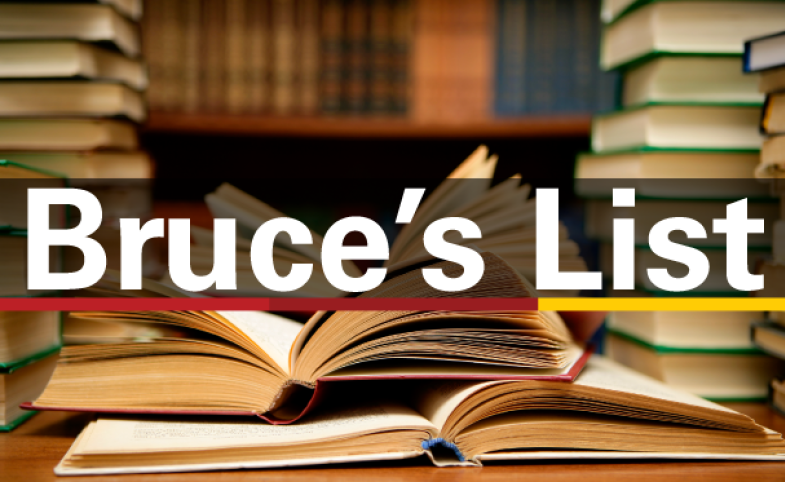The February 2017 edition of Bruce Gregory's public diplomacy reading list is now available. Known affectionately at CPD as "Bruce's List," this list is a compilation of books, journal articles, papers and blogs on a wide...
KEEP READING
Latest Must-Reads in Public Diplomacy
The October 2016 edition of Bruce Gregory's public diplomacy reading list is now available. Known affectionately at CPD as "Bruce's List," this list is a compilation of books, journal articles, papers and blogs on a wide variety of PD topics, and features a number of CPD scholars. Highlights in this edition include:
Marco Vinicio Mendez-Coto, “Smart Power and Public Diplomacy: A Costa Rican Approach,” Place Branding and Public Diplomacy, September 13, 2016, 1-11. Mendez-Coto tests Joseph Nye’s smart power concepts in the context of efforts by Costa Rica–a small state without significant armed forces–to develop a public diplomacy strategy. Drawing on the thinking of 40 career diplomats, his article questions the universality of smart power and looks at soft power in the Costa Rican context.
Rosa Brooks, How Everything Became War and the Military Became Everything: Tales from the Pentagon, (Simon & Schuster, 2016). Rosa Brooks (Georgetown University, Foreign Policy) brings practical experience in the State and Defense Departments and the insights of a smart law professor to two central questions. How should we understand blurred boundaries between war and peace, domestic and foreign, military and civilian in today’s gray zone conflicts? What are the political, legal, institutional, and operational consequences for practitioners? Her central focus is on a U.S. military asked to be everywhere and do everything. But this book is just as important for diplomats, in part because she deals creatively with problems of concern: e.g., cultural awareness, strategic communication, rule of law, training, interagency relations, organizational transformation, and leveraging civil society actors. But her views also matter at a more fundamental level. When lines between diplomacy, development, and defense are uncertain, and if it’s a “dangerous delusion” to hope that Congress will fund civilians at levels needed to accomplish many new tasks given to the military, then what is to be done? Brooks provides informed and imaginative ideas for thinking about answers.
Philip Seib, The Future of Diplomacy, (Polity Press, 2016). Journalism and media scholar Philip Seib (University of Southern California) continues his inquiries into the worlds of diplomacy, public diplomacy, and the impact of new actors and new media in this slim volume. With anecdotes, good writing, and insights drawn from current scholarship and practice, his purpose is to explore and raise questions about how diplomacy is changing. Seib advances several key judgments. The futures of diplomacy and media are inexorably connected. Public diplomacy is becoming central in diplomacy and an essential part of statecraft. The breadth of diplomacy is expanding with new actors, new publics, and new issues. His argument raises a fundamental question, implied but not directly addressed: if public diplomacy is central, should we continue to treat it as a separate term, concept, and sub-set of diplomatic practice?
Eugenio Cusumano, “Diplomatic Security for Hire: The Causes and Implications of Outsourcing Embassy Protection,” The Hague Journal of Diplomacy, published online March 2016. Cusumano (Leiden University) “analyzes the scope, causes and implications of outsourcing diplomatic protection” to private security companies in the context of increased deployment of diplomats in fragile and post-conflict environments. Cusumano looks particularly at the problems in the US State Department’s privatization of diplomacy and offers policy recommendations on “how to improve the effectiveness and accountability of privatized diplomatic protection.”
The full list can be viewed here.
Visit CPD's Online Library
Explore CPD's vast online database featuring the latest books, articles, speeches and information on international organizations dedicated to public diplomacy.
Popular Blogs
-
January 29
-
January 20
-
December 17
-
January 28
-
December 15











